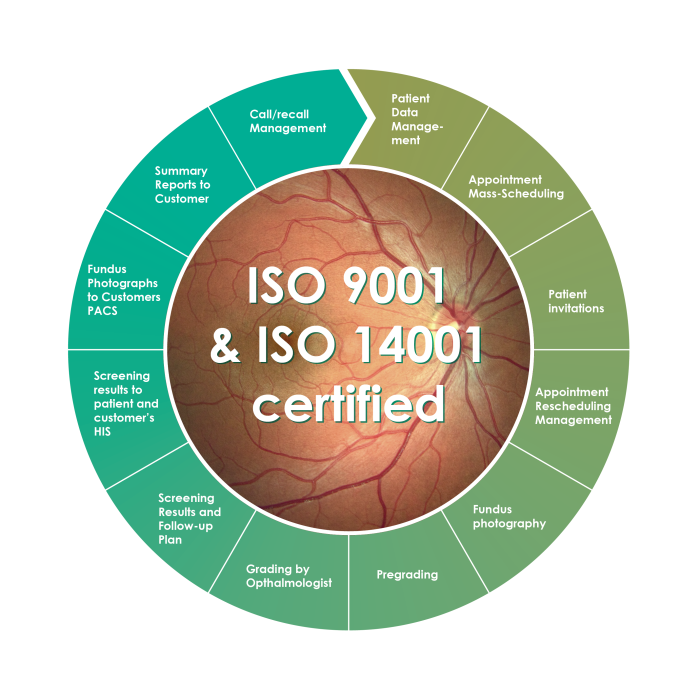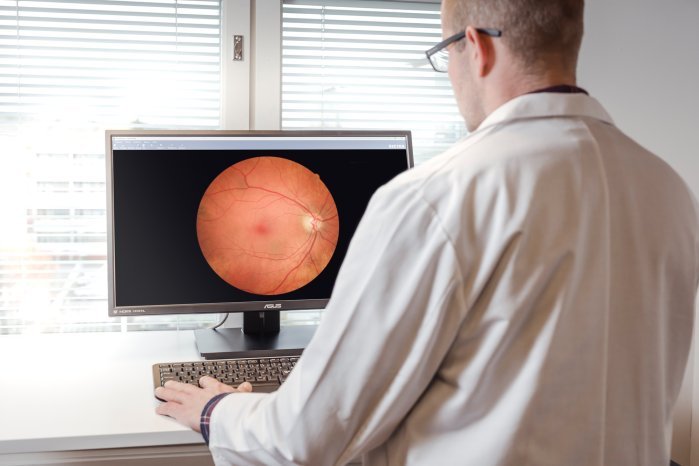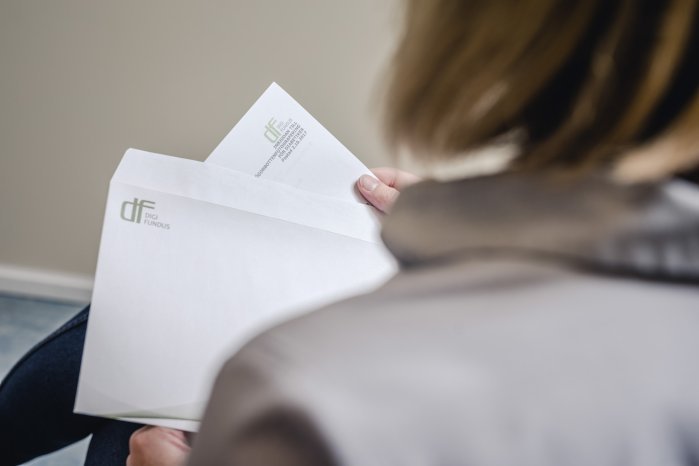Diabetic retinopathy screening and monitoring services
Digifundus is the leading provider of ophthalmic screening and monitoring services in Finland, certified pursuant to ISO 9001:2015 and ISO 14001:2015. Our customer base covers a population of about 2,5 million. We have been operating since 2000, and provide services in more than 150 municipalities within 13 health care districts across Finland and Sweden.
For diabetic retinopathy we offer a high-quality, affordable, and effortless alternative to organize screening and monitoring.
Customer benefits:
- Fast patient access, no capacity problems, easy deployment
- Customer can focus on patient care instead of office work
- Reliable and cost efficient way to organize screening
- Widely recommended partner
service chain

Our process starts by acquiring and archiving the diabetic patient information from the customer. Based on patient information and examination history, we form long-term screening plan and mass schedule patients to screening batches. After this we agree the dates of photography sessions with the customer and send written invitations to each patient a few weeks before the actual appointment time. For rescheduling we provide full patient appointment rescheduling service through the internet, call centre and/or email. This helps reduce the amount of calls to the customer. Finally we send the secondary invitation round to fill up the last open appointment times. All this ensures the optimal patient flow to the fundus photography and keeps the room need as minimum as possible. Fundus photography can be carried out either in customer's facility or other place agreed.

We save and process patient information, photographs and medical opinions to our telemedicine system. After each photography session our pregraders sort out the normal fundus images. Images displaying any changes are moved to an ophthalmologist for grading. Our pregraders and ophthalmologists are very experienced and they are specially trained for diabetic retinopathy screening. Grading can be done according to international, national or customer specific standards. When grading is done, all results including examination data and patients’ medical opinions are digitally transferred to the customer’s picture archive system (PACS) and hospital information system (HIS). Also, the patients receive their screening results and next examination appointment by post. After each screening session we deliver a comprehensive report, which gives customer a clear view over the whole patient database, diabetes progress and effects of medical interventions.

Quality control is built in to our processes and every single detail is precisely considered. Our quality assurance ensures that same excellent quality is repeated every time and in every step of the process. Possible aberrations are documented and investigated thoroughly. All our employees are experienced professionals. New employees go through thorough training period, which means that before they are allowed to work on their own, they have already done hundreds of examinations. Every employee receives regular further training courses and best practices are spread around by periodically working in pairs. We also use regular double checks to verify our quality. In our process employees always have the possibility to consult colleague, in addition technical and back-office support is constantly available. We follow ISO 9001:2015 and ISO 14001:2015 quality management standards.
All of our fundus photographers are trained for recognising emergency cases and procedures on how to react. This is essential in unexpected situations such as when a patient comes to screening with a severe eye problem. For example in retinal detachment the patient can be only minutes away from complete loss of vision.
Patient recall management is a demanding task, which takes lot of time. That time could be used to medical practice, not office work. Our intelligent recall management service ensures that the patients are examined at the right time according to the severity of the pathology. This way changes can be detected in early stage and patient can be referred to lighter treatment before the situation gets worse needing more demanding actions. Overall this saves the costs in special health care.
If you got interested in our service, please contact us!
